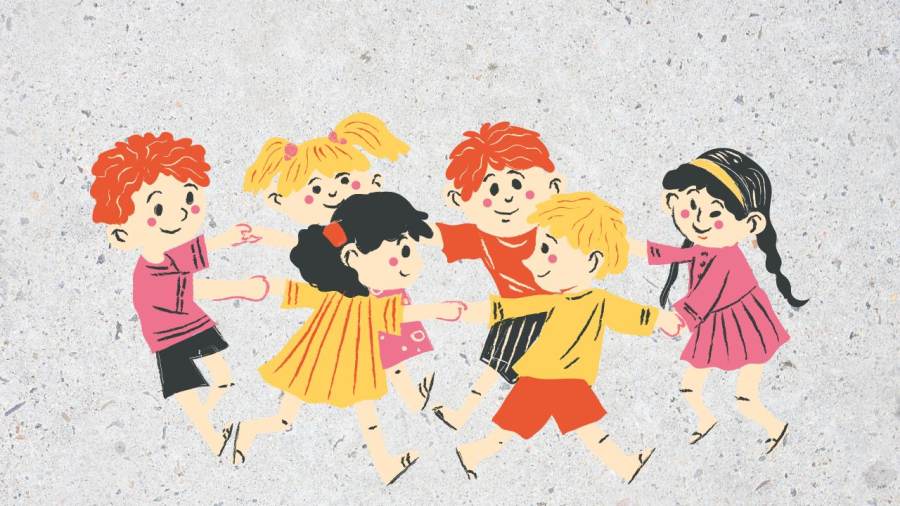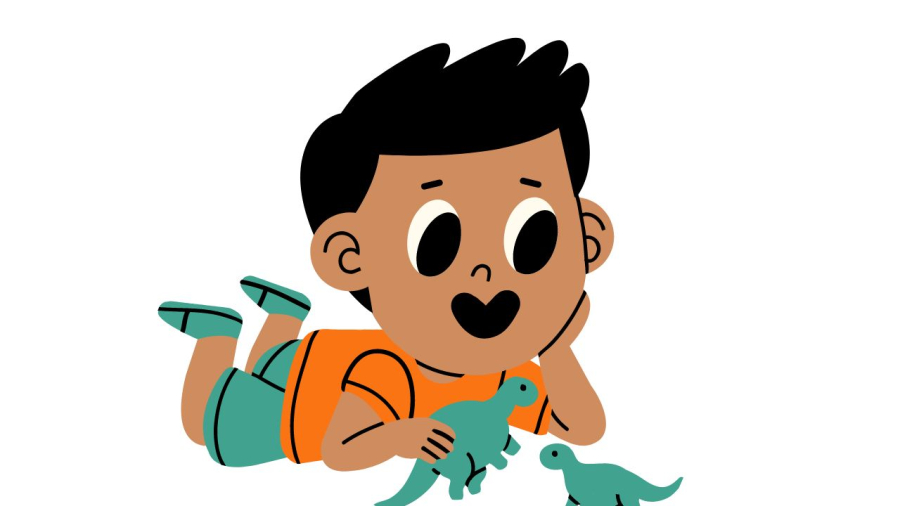Playing Children
Many parents are overly concerned about studying and often restrict their children’s playtime. When they see their children playing a lot, they complain, “Aren’t you going to learn your letters? Aren’t you going to practice addition and subtraction? What if you enter elementary school and can’t keep up?”
Playing is not as useless as many parents think. Children need to play. However, for many parents, a child’s playtime is always “sacrificed” to focus on the only “useful” task: studying. It seems that playing and studying are opposites.

Playing is not as useless as many parents think
Children who are allowed to play tend to be more obedient and perform better in school. But in real life, how many children, when not in class at school, have to sit hunched over their small desks at home, with almost no time to relax? Play activities help children strengthen their physical health, enhance their observation skills, and improve their motor and cognitive abilities.
Take the game “playing family” as an example. It is a role-playing game that most children enjoy. They place bottles and cans on the table, pretend to cook, use a spoon to pretend to feed a stuffed animal, and take turns playing the roles of father and mother. In this seemingly boring and meaningless play behavior, children develop fine motor skills and enhance their language communication skills. Through this, they learn about the rules of the adult world and the importance of division of labor and cooperation.
Playing also helps children relax mentally, making them less stressed and less likely to cry. Therefore, it is extremely important to arrange playtime with your children, allow them to play, and guide them towards playing beneficial games.

Children have hobbies that parents consider too ordinary, but they are also beneficial
”Meaningless” Hobbies
One parent, whose child had lost a collection of photo albums, posted a notice on the elevator door: “These are the photos that my child has kept for a long time. They are something he loves very much. If you have found them, please contact us. Thank you very much!” Netizens were very touched after seeing it. It is wonderful to be a parent like that, who cares about their child’s feelings.
Many children will become obsessed with certain things or develop particular hobbies. Their feelings of joy and happiness often come from these small, “useless” things. Many people believe that children must have hobbies that will lead to future success, such as liking cars, programming, or fixing things.
Many parents look down on their children’s hobbies and consider them trivial. Once the child’s academic performance declines, these “hobbies” become the culprits and are ruthlessly suppressed and punished.
In fact, as long as a hobby does not violate social morality and is within the range of safety, it will not become a key factor affecting the child’s studies. To have a happy and fulfilling childhood, children should have time to do the things they like, even if their parents consider them too ordinary.
It can help children maintain a positive, optimistic attitude, and their spirit will surely be enriched. When they do these things, they also experience genuine happiness. These childhood joys can be the most valuable and precious things in a child’s life.
Every child is an individual with different interests and abilities, so there is never a “useless” hobby. Even if a child cannot become an expert in the field, they will still gain a lot in the process of exploration: they will be respected, they will understand love, and they will understand what joy is. Therefore, parents should not hinder their children from having “useless” hobbies. Instead, they should be a strong supporter behind their children.
Reading for Entertainment
Many parents only let their children read classic and elite books and criticize books for entertainment. Many believe that books that are not related to studies or school grades should not be read.
Actually, if entertainment books are not harmful, teach your children to allocate their reading time. Only when their interests and needs are met first can children continue to read a variety of genres. Things that adults consider “good books” are not something that children do not read; it is just that they need time.
Entertainment books are a way to entice children to read. Parents just need to pay attention to the content being harmless and ensure that their children do not spend too much time on them.
Experiencing Life
The childhood of today’s children seems to be far from happy because they are forced to study so much that they have no time to experience real life. Many children feel lonely and depressed due to the pressure of studying at an age when they should be carefree.
Many children enjoy cooking with their parents but are chased away because they are afraid of getting in the way, and the child should just focus on studying. As a result, many children lack real-life experiences, so they do not have autonomy, confidence, and gradually lose the ability to recognize happiness, becoming trapped in the worry of grades.
The ability to be happy is the most important thing in a child’s life. This subjective feeling is hidden in the small details of life, such as the whole family cleaning up together, going for a walk, and learning to cook together. Allowing children to experience life is to awaken their vitality.
Therefore, parents should pay attention to these seemingly useless things that are actually very beneficial to young children. Some very important changes in a child’s life can come from these seemingly useless things.






































